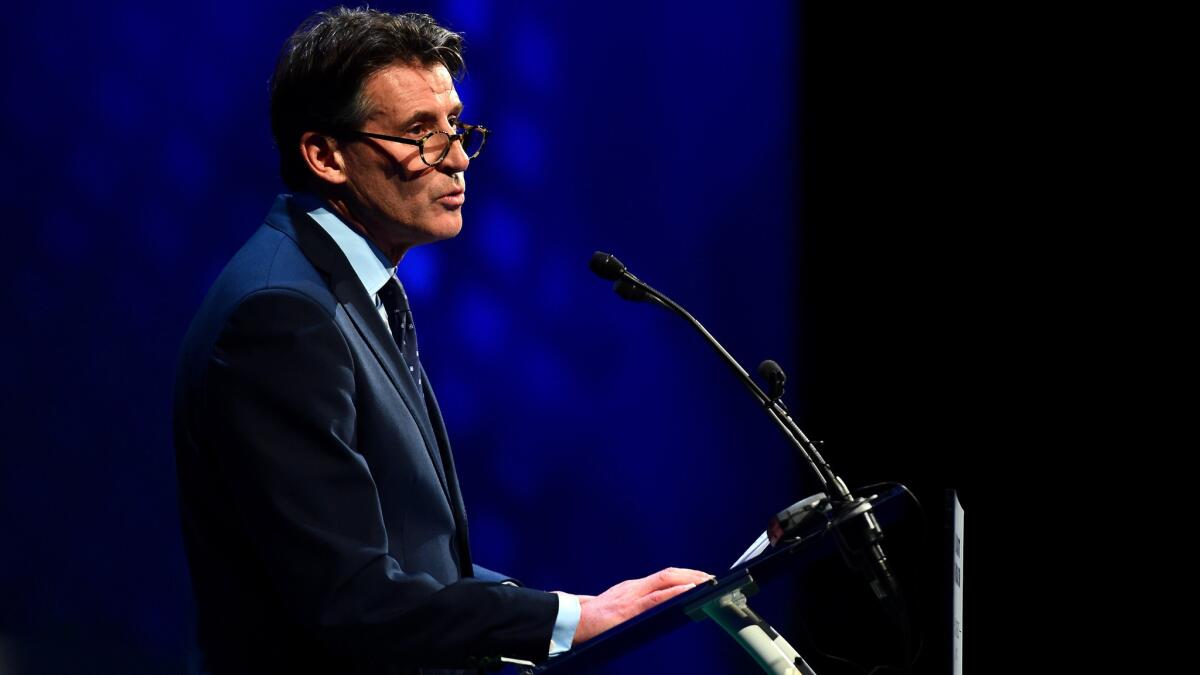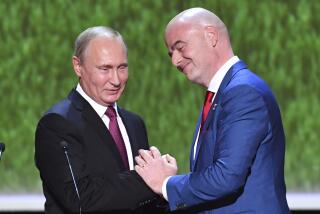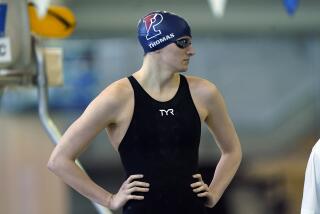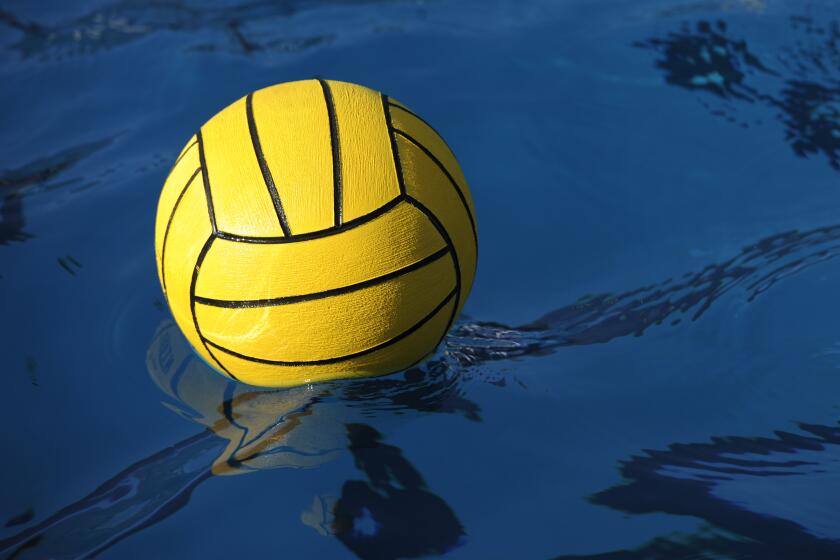Russia accepts anti-doping ban; announces punishment for 5 athletes

Sebastian Coe, president of the IAAF. delivers a speech during the ppening ceremony of the Peace & Sport International Forum on Wednesday in Monaco.
MONACO — Russia vowed Thursday to work “very actively” with track and field’s governing body to eradicate the doping culture that led to its blanket ban from international competition, possibly including next year’s Olympics in Rio de Janeiro.
The decision by Russia’s athletics federation not to contest the ban and its additional promise to work “very hard” to tackle doping represented a modest victory for Sebastian Coe, the embattled president of the International Association of Athletics Federations.
The move suggests that Coe’s hardline stance against Russia is producing early results. It was Coe who first pushed the IAAF council to sanction Russia for systematic, state-sponsored doping identified by a World Anti-Doping Agency investigation. The council then voted 22-1 on Nov. 13 to provisionally suspend ARAF, the Russian athletics federation, barring it from international competition.
To be reinstated, Russia will now have to clear numerous hurdles, not only sanctioning athletes and others who doped or were complicit in cheating and cover-ups but also carrying out a series of reforms. It will have to satisfy an IAAF inspection commission that it has ticked all the boxes required to be allowed back into the fold. An IAAF council meeting on Thursday in Monaco was fleshing out details of what those boxes will be, exactly.
By accepting the IAAF suspension and waiving its right to a hearing, Russia signaled that it wants the process that could lead to its reinstatement to move forward quickly. In a letter to the IAAF, the general secretary of ARAF, Mikhail Butov, said: “We are working very hard now in Russia to change a lot.”
“We will cooperate with (the) nominated commission very actively,” Butov said. “I hope for a positive result after (a) certain time and (a) full come-back to the IAAF family.”
Get the latest in sports with our free newsletter >>
Russia’s anti-doping agency announced on Thursday that two Russian weightlifters, two professional cyclists and a sport dancer have been banned for doping.
Both cyclists race for Itera-Katusha, the junior team of Russian world tour team Katusha, which was briefly denied a license in 2012 over repeated doping violations but regained it on appeal.
The cyclists are Ivan Lutsenko and Andrei Lukonin, who represented Itera-Katusha in European tour events this season. Lutsenko also won the silver medal at this year’s Russian national under-23 championships.
The weightlifters include Russian junior silver medalist Azamat Dzhioev, who received a four-year ban. He was previously banned from 2012 until last year for another doping offense.
Also suspended is Russian Cup bronze medal-winning weightlifter Sergei Zhuromsky, who received a four-year ban, and sport dancer Andrei Gusev, banned for a year.
The agency did not say what doping substances were involved in any of the cases.
That willingness to defuse the crisis of Russian doping is a boost for Coe as he faces tough questions about his own conduct.
The former two-time Olympic 1,500-meter champion is battling suggestions that his long-standing ties to Nike Inc. are no longer appropriate and pose a possible conflict of interest now that he is overseeing the sport, especially when confidence in its leadership is so low.
MORE FROM SPORTS
Angels name Scott Radinsky as their new bullpen coach
Browns’ Mike Pettine on benching Johnny Manziel: He violated our trust
NFL great Frank Gifford had degenerative brain disease, family announces
More to Read
Go beyond the scoreboard
Get the latest on L.A.'s teams in the daily Sports Report newsletter.
You may occasionally receive promotional content from the Los Angeles Times.










